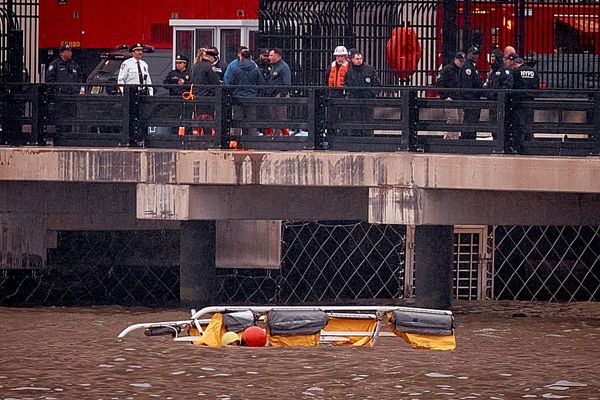
The village of Princetown sits surrounded by the desolate beauty of Dartmoor national park. It should, in theory, be a hub for the more than 2 million people a year who come to explore the bogs, granite tors and windswept moorland that in part inspired Sir Arthur Conan Doyle to write The Hound of the Baskervilles.
Today it more closely resembles a mining community after the pits closed. Dartmoor prison, which provided jobs for many residents, has been closed since last summer after the discovery of dangerous levels of radon gas. The prison officers’ club is derelict. Quiet streets bear testimony to the ghostly finger of financial fate.
The fate of the prison has not dented the profits of the Duchy of Cornwall, however, which owns the land the village sits on. The taxpayer is still paying Prince William’s estate £1.5m a year to lease the abandoned prison, and is set to do so for another 24 years.
The government may soon face an even bigger bill: about 500 former inmates and staff who worked at the jail are planning to sue the Ministry of Justice, alleging they have been exposed to radon levels up to 14 times the legal limit, the Observer can reveal.
Radon, a naturally occurring radioactive gas in soil and rocks, is the second leading cause of lung cancer after smoking and is conservatively linked to about 5% of lung cancer cases in the UK a year, causing more than 1,100 deaths, 3.1% of the total annually.
Solicitor Mladen Kesar is representing the group. Of those bringing the case, 10 people have had cancer and, of those, two have since died. Others report symptoms they believe are linked to radon poisoning, including shortness of breath, wheezing and nosebleeds. Many worry that it may take several years for potential health effects to show, including lung cancer, stomach cancer and emphysema.
Kesar compared his clients’ time in the jail to sitting inside the Chernobyl nuclear reactor. “I can’t prove causation yet, but that doesn’t mean I won’t be able to prove it,” he said.
Lindon Ball, 31, from Torquay, who was already asthmatic, has suffered more severe lung and heart problems since serving time in Dartmoor in 2019 and 2020 for possessing an unlicensed firearm. During the Covid pandemic, he and other prisoners were locked up for more than 23 hours a day. “The prison is a bad, bad place,” he said. “They treat you like a dog. I’ve had breathing problems. I feel like I’ve got lumps in my lungs. I’ve got heart problems as well.”
Another man, who asked to remain anonymous, described cell windows which had been smashed out to let more air in because of the radon, heating that worked only intermittently, mist rolling into the damp cells and mould everywhere that had to be regularly scrubbed off. “My cell, I think, was 14 times over the legal limit [for radon]. I went there as a well man and came out ill,” he said. “I’m a scaffolder but I can’t work now. I’m signed off sick.”
Joe Priscott, 27, from north Devon, who was in Dartmoor for dangerous driving and actual bodily harm from July 2021 to May 2023, developed nosebleeds for the only time in his life while he was there. “My solicitor sent me a list of the cells with the highest radon readings – and four of the highest were the ones I’d been in,” he said. MPs first began discussing high radon levels on Dartmoor in 1987. Staff at the prison began monitoring levels in 2010, say former inmates, but the last of the 640 prisoners and 159 staff were not moved out until July 2024.
Villagers, who have dealt with their own radon problems by installing ventilation systems, doubt that the jail will ever reopen because of the complications of fixing such an old building. However, Amy Rees, the head of the prison and probation service, told the justice parliamentary select committee last month that it would still be cheaper to install protective equipment in Dartmoor than to build a new prison.
A grey granite fortress built from 1806-09 to house French prisoners of the Napoleonic wars, the empty category C jail casts a shadow over increasingly worried neighbours looking out at disused buildings.
The village – which is owned by William’s £1.1bn Duchy of Cornwall estate and stands as the highest settlement on the moor at 1,430ft above sea level – and its surrounding area have suffered an estimated £30m hit to the local economy after a disastrous combination of events.
Many of them stem from the prison closure but there are other factors too, including financial cuts at the national park authority. The national park’s visitor centre, housed in the historic former Duchy Hotel where Conan Doyle stayed and started writing The Hound of the Baskervilles, is due to close later this year because of a cash crisis at the park authority and mounting repair bills for the building. The youth centre has run into financial problems, the arts festival has been cancelled, and a long-promised new tourist attraction, a distillery, has failed to materialise and is still short of £5m in startup cash.
Locals believe tens of thousands of tourist visits have been lost, despite the raw beauty of the surroundings, and local businesses are reporting a subsequent drop in trade. Rory Atton, who owns the Dewerstone organic clothing and coffee shop in the village centre, sees one common problem: nearly all the affected buildings and organisations are on leases from the duchy, requiring them, rather than the duchy, to pay for any repairs or improvements. Villagers have questions for William, who became Duke of Cornwall when his father acceded the throne and thus took over the duchy. “I think he might have been to some surrounding farms, but he’s not been to the village to talk to us,” Atton said. “Many people around here are ex-services and tend to be supportive of the monarchy, but they are growing increasingly frustrated with Prince William. What is his plan? Is there a plan? Because right now no one can see it.”
Mark Renders, a local councillor, member of the Dartmoor National Park Authority and village postmaster in Princetown, worries that the shops may have to close eventually if nothing is done. He shares some similar criticisms of the duchy but also points out that many organisations have been paying only £100 rent, heavily subsidised by the duchy, and could have chosen to pay higher sums in return for making the duchy responsible for repairs under their tenancy agreements.
“They’ve had 30 years paying £100 a year in rent,” he said.
The duchy, for its part, appears to be putting together a plan to revitalise the village. It has given the youth club money for six months while it searches for alternative funding and is understood to be developing a wider strategy for the area. A spokesperson said it was working with the national park on a plan to turn the visitor centre into something that would support the local tourist industry. “We take our role seriously,” she said.
Neither the duchy nor the national park would give further details about the plan for the visitor centre, one of three on Dartmoor, but the Observer understands that they may turn it into a youth hostel.
The prison service, meanwhile, said it was still monitoring radon levels at Dartmoor prison and would not comment on the legal action. “We continue to take advice from specialists to explore how it can be reopened as quickly as possible,” a spokesperson said.
• This article and its headline were amended on 13 April 2025. An earlier headline said that a “Dartmoor village” was paying £1.5m to Prince William for an abandoned prison. In fact it is taxpayers who foot the bill. Also the article said that Dartmoor Prison Museum had been closed when it is open seven days a week.







